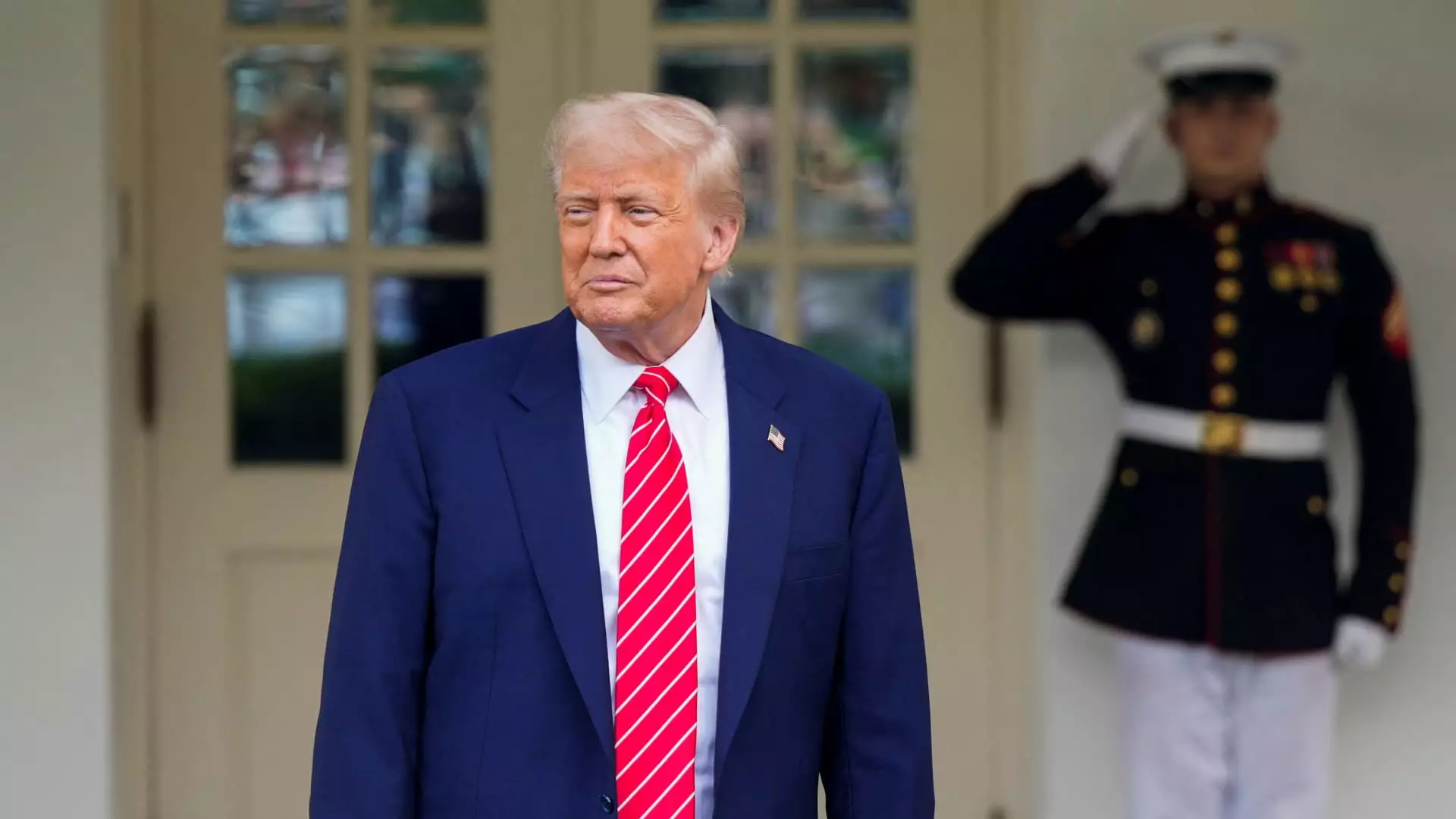President Donald Trump’s tangled relationship with cryptocurrency epitomizes the broader conflict of interest that often arises when personal pursuits collide with public responsibilities. While the need for regulated and stable digital currencies becomes increasingly urgent, Trump’s personal financial stakes have thwarted attempts at crafting productive crypto legislation. Most notably, the failure of the GENIUS Act—a proposed law designed to establish federal regulations for stablecoins—raises serious questions about the integrity of those in power and the profound implications for national security and economic stability. When lawmakers, like Senator Jeff Merkley, label the situation as a “profoundly corrupt scheme,” it’s evident that the repercussions of this entanglement extend far beyond mere political squabbles.
The Delicate Balance of Trust
For any functional democracy, public trust isn’t merely preferable; it is essential. However, Trump’s foray into the cryptocurrency space, exemplified by his ownership of meme coin $TRUMP, has introduced elements of self-dealing that compromise this foundation of faith. The revelation that individuals can enrich the president by investing in cryptocurrencies he controls poses a staggering ethical quandary. Critics have rightfully pointed out that such arrangements not only undermine the legitimacy of the legislative process but can also yield a catastrophic erosion of trust in government institutions. When foundational trust fractures, citizens may find themselves disillusioned—alienated from the very system meant to serve them.
The Battle for Bipartisanship
Given the polarized state of contemporary American politics, any opportunity for bipartisan policy-making should be considered a precious commodity. The GENIUS Act had the potential to create a rare moment of cooperation between Democrats and Republicans. But as we witnessed, Trump’s presidential ambitions amplified through the crypto veil proved to be a decisive barrier. Even moderate Democrats, who previously supported the bill, withdrew their backing after voicing concerns about the ethical implications of the president’s financial relationships. The paradox is striking—while crypto entrepreneurs desperately seek regulatory clarity to foster innovation in a rapidly evolving industry, their efforts are undermined by the very individual who is supposed to be championing progress.
Legislative Gridlock and its Fallout
When personal profit supersedes public interest, legislative gridlock becomes inevitable. Some Senators, like Lisa Blunt Rochester, have pointed directly at Trump’s financial entanglements as a root cause for the failure of stablecoin legislation, underscoring a scenario where governance is stymied by self-interest. Moreover, the rise of alternative measures like the “End Crypto Corruption Act” cultivates an environment of suspicion rather than progress. Adopting a more stringent regulatory framework might be necessary, but it also highlights how personal ambitions can stifle broader legislation aimed at stabilizing an industry desperately in need of reliable guidance.
Amid all of this, the White House remains largely unresponsive, treating inquiries into potential conflicts as mere distractions instead of urgent civic concerns. Press Secretary Karoline Leavitt’s comments frame Trump’s personal business as a testament to his success, cleverly sidestepping the glaring ethical concerns that accompany such statements. Yet success should never be conflated with the health of public institutions. The United States risks becoming a laughingstock on the global stage, evoking comparisons to corrupt regimes where personal interests overshadow the public good.
The Future of Crypto Legislation
As the ongoing battle for regulation unfolds, the voices of entrepreneurs and investors are becoming increasingly urgent. Observers like Ryan Gilbert have articulated a collective frustration: good policy is being actively suffocated by personal gain. The ramifications of this conflict are profound, not just for markets but also for the socio-economic fabric of the country. The ongoing question remains: Can any path be found that allows for both presidential ambition and the essential, dispassionate governance needed to regulate an innovative industry?
Through the lens of center-right wing liberalism, one must recognize that prosperity should be built on a foundation of ethical governance rather than financial entanglements that threaten the rule of law. This moment calls for a reevaluation of priorities—both for the present administration and those who seek to reform a system that increasingly appears compromised. Without significant change, the dream of a thriving and well-regulated cryptocurrency landscape may remain just that—a dream, forever out of reach.

